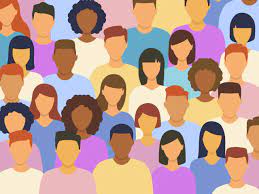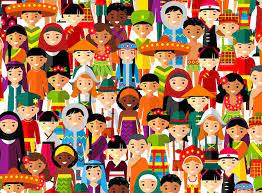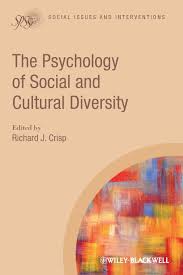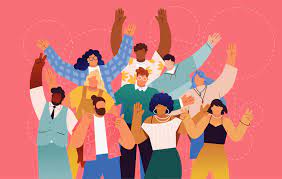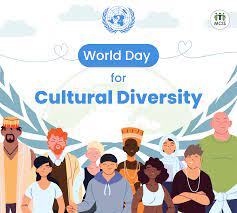Exploring Armenia: Unveiling Unforgettable Attractions

Exploring Armenia: Unforgettable Attractions to Visit
Armenia, a country rich in history and culture, boasts a plethora of attractions that cater to every taste and interest. From ancient monasteries nestled in picturesque landscapes to bustling markets teeming with local delicacies, Armenia offers a treasure trove of experiences for travellers seeking adventure and discovery.
Tatev Monastery
Nestled on a cliff edge overlooking stunning valleys, Tatev Monastery is a masterpiece of medieval Armenian architecture. Visitors can ride the Wings of Tatev aerial tramway for breathtaking views as they approach this historic site.
Lake Sevan
Lake Sevan, one of the largest freshwater high-altitude lakes in the world, is a serene retreat for nature lovers. Surrounded by mountains, this azure gem offers opportunities for swimming, boating, and simply soaking in the tranquillity of the surroundings.
Garni Temple
Garni Temple stands as a testament to Armenia’s pagan past, showcasing Hellenistic architectural influences. Set against a backdrop of rugged cliffs and verdant landscapes, this ancient temple is a must-visit for history enthusiasts.
Dilijan National Park
Dilijan National Park is a haven for outdoor enthusiasts, with its lush forests, meandering trails, and crystal-clear streams. Visitors can hike through this pristine wilderness or simply relax amidst the beauty of nature.
Vernissage Market
Vernissage Market in Yerevan is a vibrant hub of local craftsmanship and culture. Here, visitors can browse through an array of handmade crafts, traditional textiles, and unique souvenirs while immersing themselves in the lively atmosphere of this bustling market.
Whether you’re drawn to ancient history or natural beauty, Armenia’s attractions promise unforgettable experiences that will leave you enchanted and inspired.
Seven Compelling Benefits of Visiting Attractions
- Attractions provide opportunities for cultural enrichment and learning.
- Visiting attractions can create lasting memories and experiences.
- Attractions offer a chance to explore new places and environments.
- Attractions cater to a wide range of interests, from history to nature to art.
- Attractions often showcase unique architecture and design.
- Attractions can be a source of inspiration and creativity.
- Exploring attractions can foster a sense of wonder and appreciation for the world around us.
Potential Drawbacks of Popular Attractions: Crowds, Costs, Hype, and Accessibility Challenges
- Crowds can detract from the peaceful ambiance of some attractions.
- Entrance fees and additional costs for activities can add up quickly.
- Some attractions may be overhyped and fail to meet visitors’ expectations.
- Limited accessibility or infrastructure challenges may hinder the enjoyment of certain attractions.
Attractions provide opportunities for cultural enrichment and learning.
Attractions serve as invaluable platforms for cultural enrichment and learning, offering visitors a window into the vibrant tapestry of traditions, history, and customs that define a particular region. By exploring attractions such as museums, historical sites, and cultural landmarks, individuals have the chance to deepen their understanding of different societies, art forms, and belief systems. Through these immersive experiences, visitors not only gain knowledge but also foster a sense of appreciation and respect for diverse cultures, ultimately promoting cross-cultural understanding and unity.
Visiting attractions can create lasting memories and experiences.
Visiting attractions offers a wonderful opportunity to create lasting memories and experiences that stay with us long after the visit has ended. Whether exploring historical sites, enjoying natural wonders, or immersing oneself in local culture, each attraction presents a unique chance to connect with a place on a deeper level and forge unforgettable moments. These experiences not only enrich our lives but also provide us with stories to share and cherish for years to come, making every visit a special and meaningful adventure.
Attractions offer a chance to explore new places and environments.
Attractions provide a wonderful opportunity to venture into unfamiliar territories and immerse oneself in new environments. Whether it’s wandering through historic sites, soaking in the beauty of natural landscapes, or exploring vibrant markets, each attraction offers a unique setting for discovery and exploration. From ancient ruins to modern marvels, these diverse places invite visitors to broaden their horizons, learn about different cultures, and create lasting memories in uncharted territories.
Attractions cater to a wide range of interests, from history to nature to art.
Attractions in Armenia cater to a diverse array of interests, appealing to those with a passion for history, nature enthusiasts, and art aficionados alike. Whether you are drawn to the ancient mysteries of historical sites, the serene beauty of natural landscapes, or the creative expressions found in art galleries and exhibitions, Armenia offers a rich tapestry of experiences that celebrate the country’s cultural heritage and natural wonders.
Attractions often showcase unique architecture and design.
Attractions frequently serve as showcases of distinctive architecture and design, offering visitors a glimpse into the creativity and craftsmanship of different eras and cultures. From ancient monuments adorned with intricate carvings to modern structures pushing the boundaries of architectural innovation, these sites not only captivate with their aesthetic appeal but also provide valuable insights into the historical, cultural, and artistic influences that have shaped their construction. Exploring attractions with unique architecture and design can be a fascinating journey through time and creativity, leaving visitors in awe of the beauty and ingenuity displayed in each structure.
Attractions can be a source of inspiration and creativity.
Exploring attractions can serve as a wellspring of inspiration and creativity, offering a fresh perspective and stimulating the imagination. From the intricate architecture of historical landmarks to the natural beauty of scenic landscapes, attractions have the power to evoke emotions, spark ideas, and ignite a sense of wonder. By immersing oneself in these captivating environments, individuals can tap into their creativity, uncover new insights, and find inspiration in unexpected places. Attractions not only entertain and educate but also have the remarkable ability to fuel artistic expression and innovative thinking.
Exploring attractions can foster a sense of wonder and appreciation for the world around us.
Exploring attractions can be a transformative experience, igniting a sense of wonder and deep appreciation for the diverse beauty of the world around us. From ancient landmarks to natural wonders, each attraction has a story to tell and a unique charm that can inspire awe and curiosity. By immersing ourselves in these cultural and natural treasures, we not only broaden our horizons but also cultivate a profound respect for the rich tapestry of history, art, and landscapes that make our world so captivating.
Crowds can detract from the peaceful ambiance of some attractions.
Crowds can sometimes detract from the serene ambiance of certain attractions, diminishing the sense of tranquillity and contemplation that visitors seek. The presence of large numbers of people can create noise and distractions, making it challenging to fully immerse oneself in the beauty and history of a place. While popular attractions often draw crowds for good reason, finding moments of peace and solitude amidst the hustle and bustle can require patience and strategic timing. Despite this con, the vibrant energy of fellow travellers can also add a dynamic element to the experience, offering opportunities for cultural exchange and shared appreciation of these remarkable sites.
Entrance fees and additional costs for activities can add up quickly.
When exploring attractions, one significant downside to consider is that entrance fees and additional costs for activities can accumulate rapidly, potentially straining your budget. While the allure of visiting various sites is undeniable, the financial aspect can sometimes present a challenge, especially for travellers on a tight budget. Being mindful of these expenses and planning accordingly can help ensure a more financially sustainable and enjoyable travel experience.
Some attractions may be overhyped and fail to meet visitors’ expectations.
While exploring a destination, it’s important to acknowledge that some attractions may fall short of the hype surrounding them, ultimately disappointing visitors who have high expectations. Whether due to overcrowding, commercialization, or simply not living up to the advertised grandeur, these overhyped attractions can leave travellers feeling underwhelmed and disillusioned. It’s advisable for visitors to research and manage their expectations before visiting these popular spots to ensure a more fulfilling and authentic travel experience.
Limited accessibility or infrastructure challenges may hinder the enjoyment of certain attractions.
Limited accessibility or infrastructure challenges can pose significant hurdles for visitors looking to fully enjoy certain attractions in Armenia. Inaccessible locations or inadequate transportation options may make it difficult for individuals with mobility issues to explore historical sites or natural wonders. Additionally, a lack of proper facilities such as restrooms or visitor centres can detract from the overall experience and comfort of tourists. Addressing these challenges through improved infrastructure and accessibility measures is essential to ensure that all visitors have the opportunity to appreciate the beauty and cultural significance of Armenia’s attractions.




